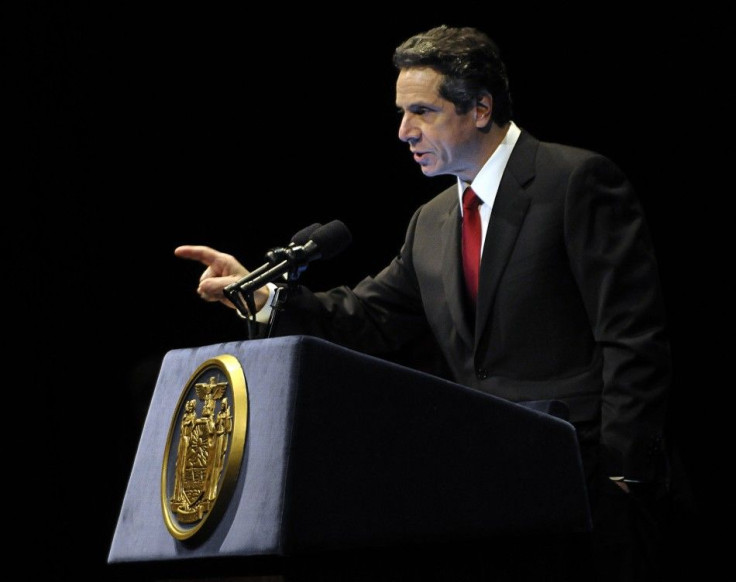Religious Organization Issue Bogs Down New York Gay Marriage Bill Debate; Passage Uncertain

The New York State Senate's protracted battle over gay marriage has turned into an excruciating slog of closed door meetings, dueling protesters and breathless, obsessive media coverage: someone has suggested that a vote will or won't happen Friday, an undecided Republican has or hasn't made up his mind.
What exactly is the source of the impasse? On one level there is the moral dimension to the issue, the basic belief -- often supported by religious teachings -- that marriage between anything other than a man and a woman is an ethical trespass, or a sin in the eyes of God. Senators listen to constituents who believe this, and to the influential Conservative Party, a separate entity from the Republican party that rarely fields candidates but still swings crucial votes to Republicans it endorses.
But there are basic economic factors, too. Proponents of gay marriage argue that same sex couples are deprived of hundreds of benefits extended to married couples, including being able to share health insurance, pension benefits and property ownership rights. Opponents in New York worry that religious institutions could face economic penalties for refusing to marry couples or, in the case of organizations like the Knights of Columbus, barring gay couples from using their facilities for marriage ceremonies.
The bill introduced by Governor Andrew Cuomo shields any benevolent organization or religious corporation that refuses to provide accommodations, advantages, facilities or privileges for same-sex marriage from lawsuits. But religious leaders and Republican senators are still fearful that organizations refusing gay couples services could face costly civil action or loss of tax protections if the law passes. Greg Ball, a formerly undecided Republican senator, affirmed his no vote yesterday for that reason.
Over the past few weeks, I've had the distinct opportunity of listening to literally thousands of residents, on both sides of this issue, by holding an undecided stance, Ball said in a statement. I am proud that I have secured some strong protections for religious institutions and basic protections for religious organizations. The bill still lacks many of the basic religious protections I thought were vital, and for this reason, and as I did in the Assembly, I will be voting 'no.'
Edward Mechmann, an attorney for the New York Catholic Archdiocese, predicted that affiliated religious organizations -- for example, faith-based adoption agencies that would be wary of letting gay couples adopt -- could face years of litigation on individual cases at all levels of government, and Dennis Poust of the New York State Catholic Conference said he has closely been watching the bill's evolving language for potential challenges in terms of religious liberty. Religiously oriented social service providers fear that accusations of discrimination could lead them to lose thier tax-exempt status since they do not fall under the bill's designation of protected organizations.
We have certain principles and ethical guidelines we'd have to compromise, said Bill Banuchi, whose Marriage and Family Savers Institute provides Catholic-inspired marriage counseling. We would be in violation of the law and open to being sued for discrimination, and we could lose our tax-exempt status if we refused to counsel couples according to their value system. Our value system is that the only authentic marriage is between a male and a female.
But William Eskridge, a professor at Yale Law School in New Haven, Conn., told Reuters that states with statutes legalizing gay marriage have seen minimal legal fallout.
There have been very few lawsuits, and the lawsuits that are filed usually have been resolved amicably, Eskridge said.
© Copyright IBTimes 2025. All rights reserved.





















